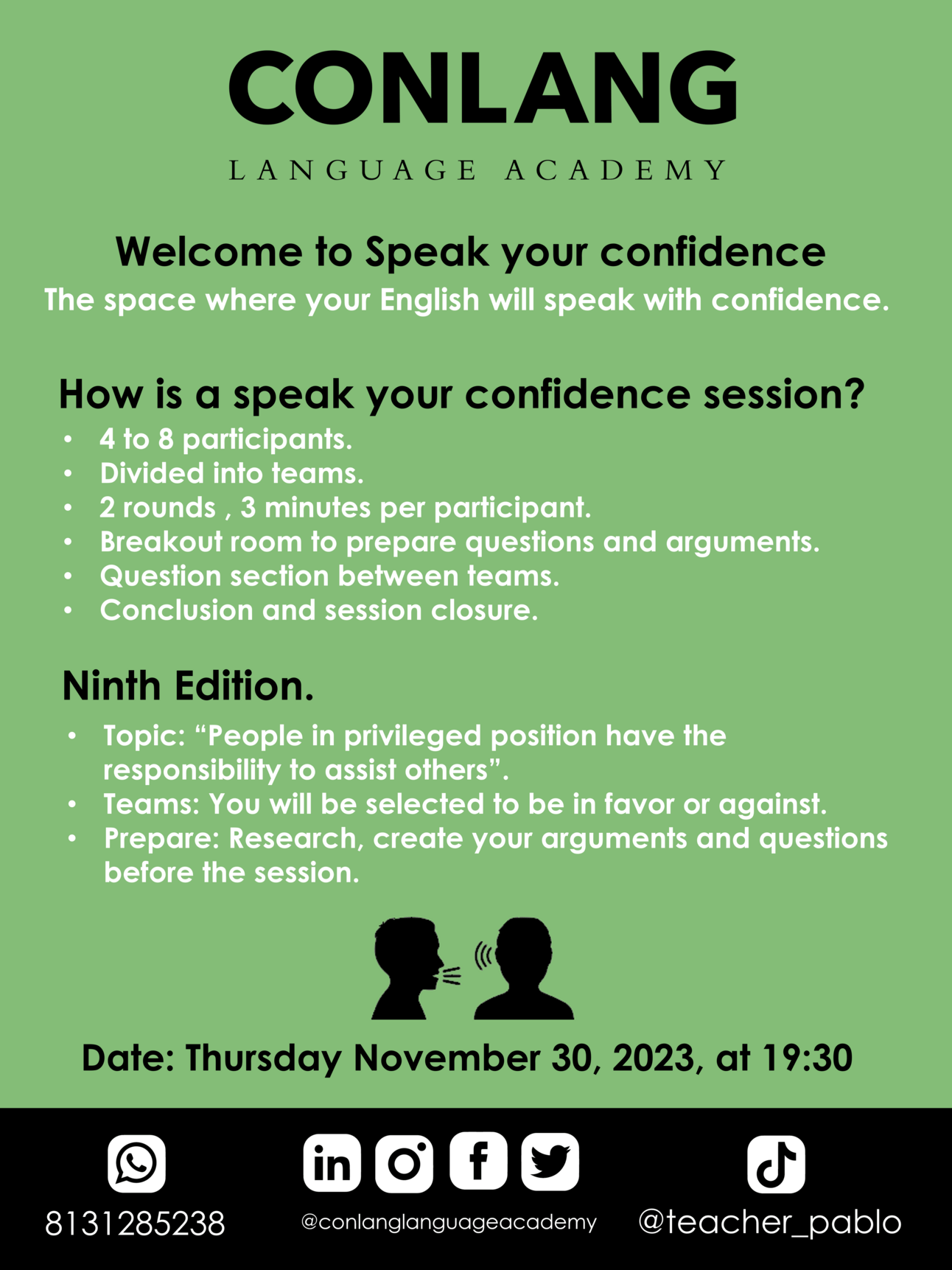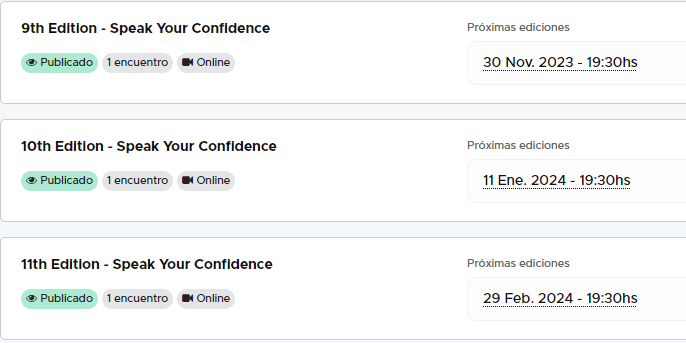- Conlang's Newsletter by Teacher Pablo
- Posts
- How to make people like you instantly?
How to make people like you instantly?
10 communication vices | The really good podcast

Hola mi conlanger, te deso un excelente viernes, esperando que todo esté fluyendo en tu día, semana, mes, vida. Fluye.
Escucha esta edición en la siguiente liga:
How to make people like you instantly?
Continuing with the book “How to win friends and influence people” by Dale Carnegie this week I finished Part Two of the book “Six ways to make people like you” which we splitted and learned about in the past editions.
So, I wanna begin by summarizing this chapter in which he presented the following principles:
Become genuinly interested in other people.
Smile
Remember that a person’s name is to that person the sweetest and most important sound in any language.
Be a good listener. Encourage others to talk about themselves.
Talk in terms of the other person’s interests.
Make the other person feel important - and do it sincerely.
In this chapter specifically he details and talks the last principle, make the other person feel important - and do it sincerely. Y definitivamente hay una conexión entre cada uno de los principios porque siento que cada uno va de la mano entre ellos. En resumen, si quieres caerle bien a otra persona habla sobre y deja que esa otra persona hable. As simple as that, as hard to achieve.
He begins with this “If we are so contemptibly selfish that we can’t radiate a little happiness and pass on a bit of honest appreciation without trying to get something out of the other person in return - if our souls are no bigger than sour crab apples, we shall meet with the failure we so richly deserve.” Y esto va para aquellos que sólo piensan o interactúan transaccionalmente, es decir, que de todo tienen que sacar “tajada” en lugar de dar genuinamente por dar. Ahí está la falla y el problema que tenemos con muchas personas.
We all have a deep desire to feel important keep that in mind and always address others with this idea, because if you have clear that the other person wants to feel important before putting yourself always first, you will detect cues that can serve you to address that person and make him | her feel important. Honest, true admiration for others will get you further than any possible request you may ask.
Don’t make the mistake of talking to others about yourself but rather talk to people about themselves.
Let me know what you think about this principle and about this chapter, I’ll be glad to talk about it with you.
Vocabulary, Phrases and Tools
This week I wanna share with you the 10 most common communication vices or flaws (vicios o deficiencias) that hinder (obstaculizar) effective communication.
Poor listening
Asuming intent
Lack of clarity
Non-Verbal Inconsistency
Overuse of Jargon
Defensiveness
Lack of empathy
Assuming a shared understanding
Ignoring Non-Verbal Cues
Interrupting
And to compliment these vices I wanna share a parody of the typical office guy that tries to finish your sentence making the conversation pretty annoying.
Let me know if you would like me to delve into any of these 10 flaws into more detail.
Week’s Content
Seguimos preparando el contenido para volver con todo, por eso estos días tampoco ha habido pero te quiero dejar nuevamente la información de la siguiente sesión de Speak Your Confidence y la liga para las siguientes que ya están definidas para que si gustas participar en alguna de ellas, puedas inscribirte.


Registrate aquí a la fecha que gustes. 👇🏻
Recommendations
This week’s recommendation is:
To watch: If you want a podcast that truly looks like a casual conversation with which you can actuly practice listening skills and learn casual american conversation and on top of that get to listen a celebrity in a casual context.
Recuerda que si no quieres seguir recibiendo este contenido de valor te puedes dar de baja en el siguiente link: